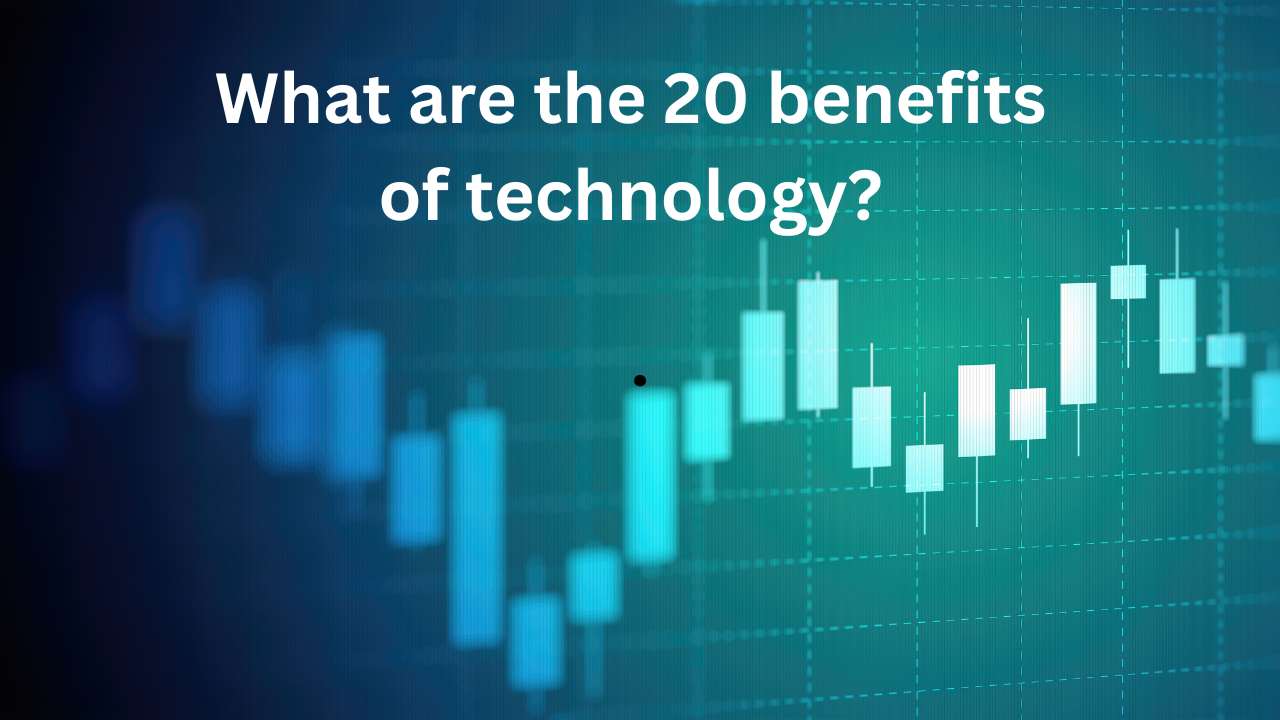Technology has revolutionized the way we live, work, and interact with the world around us. Its rapid advancements have brought about significant improvements in various aspects of life, offering countless benefits. This guide outlines 20 key benefits of technology, highlighting its positive impact on society and everyday life.
1. Improved Communication
Technology has greatly enhanced communication, making it faster and more efficient. With the advent of smartphones, social media, and instant messaging apps, people can connect with others around the globe in real-time, breaking down geographical barriers.
2. Increased Access to Information
The internet has made information more accessible than ever before. With a few clicks, individuals can access a vast amount of knowledge on virtually any topic, empowering people with information and promoting continuous learning.
3. Enhanced Education
Technology has transformed education through online courses, e-learning platforms, and digital classrooms. Students can access educational resources, attend virtual lectures, and collaborate with peers, making learning more flexible and inclusive.
4. Automation and Efficiency
Automation technologies, such as artificial intelligence (AI) and robotics, have increased efficiency in various industries. These technologies streamline processes, reduce human error, and enhance productivity by handling repetitive tasks.
5. Healthcare Advancements
Technological innovations in healthcare have improved patient care and treatment outcomes. Telemedicine, electronic health records (EHR), wearable health devices, and advanced diagnostic tools enable better disease management and personalized care.
6. Enhanced Transportation
Technology has revolutionized transportation with innovations like electric vehicles, GPS navigation, and ride-sharing apps. These advancements have made travel safer, more efficient, and environmentally friendly.
7. Economic Growth
Technological advancements drive economic growth by creating new industries, job opportunities, and business models. Innovations in fields such as fintech, e-commerce, and digital marketing have transformed traditional business practices.
8. Improved Quality of Life
Technology has improved the quality of life by providing solutions for everyday challenges. Smart home devices, fitness trackers, and health apps help individuals manage their daily routines, health, and well-being more effectively.
9. Environmental Conservation
Green technologies, such as renewable energy sources (solar, wind, and hydro power), electric vehicles, and energy-efficient appliances, contribute to environmental conservation by reducing carbon footprints and promoting sustainable practices.
10. Enhanced Entertainment
The entertainment industry has been transformed by technology, offering more interactive and immersive experiences. Streaming services, virtual reality (VR), and augmented reality (AR) provide diverse and engaging entertainment options.
11. Global Connectivity
Technology has created a global village by connecting people and businesses worldwide. This global connectivity fosters cultural exchange, collaboration, and the sharing of ideas across borders.
12. Innovation and Creativity
Technology encourages innovation and creativity by providing tools and platforms for individuals to express themselves. Software for graphic design, music production, and content creation enables users to bring their creative visions to life.
13. Improved Safety and Security
Advancements in technology have enhanced safety and security measures. Surveillance systems, cybersecurity protocols, and emergency response technologies help protect individuals and communities from threats and ensure public safety.
14. Accessibility and Inclusivity
Technology has made significant strides in promoting accessibility and inclusivity. Assistive technologies, such as screen readers, voice recognition, and adaptive devices, empower individuals with disabilities to participate fully in society.
15. Enhanced Productivity
Productivity tools and software, such as project management platforms, collaboration tools, and cloud computing, enable individuals and businesses to work more efficiently and effectively, improving overall productivity.
16. Financial Inclusion
Fintech innovations have increased financial inclusion by providing access to financial services for underserved populations. Mobile banking, digital payment systems, and microfinance platforms help bridge the gap for those without traditional banking access.
17. Scientific Research and Discovery
Technological advancements have accelerated scientific research and discovery. Advanced computing, data analysis tools, and laboratory technologies enable researchers to conduct experiments, analyze data, and make breakthroughs more efficiently.
18. Enhanced Customer Experiences
Technology has improved customer experiences through personalized services, AI-driven chatbots, and data analytics. Businesses can better understand and meet customer needs, providing tailored solutions and support.
19. Remote Work Opportunities
Technology has enabled remote work, offering flexibility and convenience for employees. Video conferencing, collaboration tools, and cloud services facilitate remote work, allowing individuals to work from anywhere in the world.
20. Social Change and Awareness
Technology has played a crucial role in driving social change and raising awareness about important issues. Social media platforms, online campaigns, and digital activism empower individuals to advocate for social justice, human rights, and environmental causes.
How is technology useful to us?
Technology has become an integral part of our daily lives, profoundly affecting the way we work, communicate, learn, and entertain ourselves. Its applications span across numerous sectors, providing countless benefits that enhance our efficiency, convenience, and overall quality of life. This guide explores the various ways technology is useful to us, highlighting its positive impact on society and everyday activities.
1. Communication
Technology facilitates instant communication through various channels such as email, social media, video calls, and messaging apps. It allows people to stay connected with friends, family, and colleagues, regardless of geographical distances, fostering stronger relationships and collaboration.
2. Education
Educational technology, or EdTech, has revolutionized learning by providing access to a wealth of resources and interactive platforms. Online courses, virtual classrooms, and educational apps enable personalized learning experiences, making education more accessible and engaging.
3. Healthcare
Advancements in medical technology have significantly improved patient care and outcomes. Telemedicine, wearable health devices, electronic health records, and advanced diagnostic tools enhance the efficiency and effectiveness of healthcare services, promoting better health management.
4. Productivity
Productivity tools and software help individuals and businesses manage their tasks more efficiently. Project management platforms, collaborative tools, and automation software streamline workflows, increase efficiency, and enable better time management.
5. Information Access
The internet provides unparalleled access to information on virtually any topic. Search engines, online databases, and digital libraries offer a vast array of knowledge, enabling continuous learning and informed decision-making.
6. Entertainment
Technology has transformed the entertainment industry, offering diverse and immersive experiences. Streaming services, video games, virtual reality (VR), and augmented reality (AR) provide new ways to enjoy movies, music, games, and other forms of entertainment.
7. Transportation
Innovations in transportation technology have made travel safer, faster, and more efficient. GPS navigation, ride-sharing apps, electric vehicles, and autonomous cars are just a few examples of how technology has enhanced mobility and reduced travel time.
8. Financial Services
Financial technology, or FinTech, has revolutionized the way we manage money. Mobile banking, digital payments, cryptocurrency, and online investment platforms provide convenient and secure financial services, promoting financial inclusion and literacy.
9. Home Management
Smart home technology automates and enhances household management. Devices like smart thermostats, security systems, and voice assistants allow for efficient control of home environments, improving energy efficiency and security.
10. Work Environment
Remote work technology, such as video conferencing tools and cloud services, enables flexible work arrangements. This flexibility improves work-life balance, reduces commuting time, and increases productivity by allowing employees to work from anywhere.
11. Environmental Conservation
Green technology promotes sustainable practices and reduces environmental impact. Renewable energy sources, electric vehicles, and energy-efficient appliances help conserve resources, reduce pollution, and combat climate change.
12. Social Connectivity
Social media platforms facilitate social connectivity and community building. They enable people to share experiences, support causes, and stay informed about global events, fostering a sense of community and social awareness.
13. Scientific Research
Technological tools and equipment enhance scientific research capabilities. Advanced computing, data analysis software, and laboratory technologies enable researchers to conduct experiments, analyze data, and make discoveries more efficiently.
14. Security
Technology enhances security through advanced surveillance systems, cybersecurity measures, and emergency response technologies. These tools protect individuals, businesses, and communities from various threats, ensuring safety and peace of mind.
15. Accessibility
Assistive technologies make life easier for individuals with disabilities. Screen readers, speech-to-text software, and adaptive devices enable greater independence and participation in various activities, promoting inclusivity.
16. Economic Growth
Technology drives economic growth by creating new industries and job opportunities. Innovations in fields like e-commerce, digital marketing, and artificial intelligence (AI) stimulate economic development and competitiveness.
17. Convenience
Everyday tasks are made more convenient through technology. Online shopping, digital payments, and smart home devices simplify routine activities, saving time and effort.
18. Creativity
Creative tools and platforms enable individuals to express themselves and create content. Graphic design software, music production tools, and video editing programs empower users to bring their artistic visions to life.
19. Travel
Travel planning and navigation are streamlined by technology. Online booking systems, travel apps, and GPS services simplify the process of organizing trips, ensuring smooth and enjoyable travel experiences.
20. Agriculture
Agricultural technology, or AgTech, improves farming efficiency and productivity. Precision farming tools, drones, and automated machinery help optimize crop yields, reduce waste, and promote sustainable farming practices.
Conclusion:
In conclusion, technology has brought about transformative benefits across various aspects of life. From improved communication and education to healthcare advancements and environmental conservation, the positive impact of technology is undeniable. By embracing technological innovations, society can continue to progress and address challenges more effectively, ultimately enhancing the quality of life for individuals and communities worldwide


